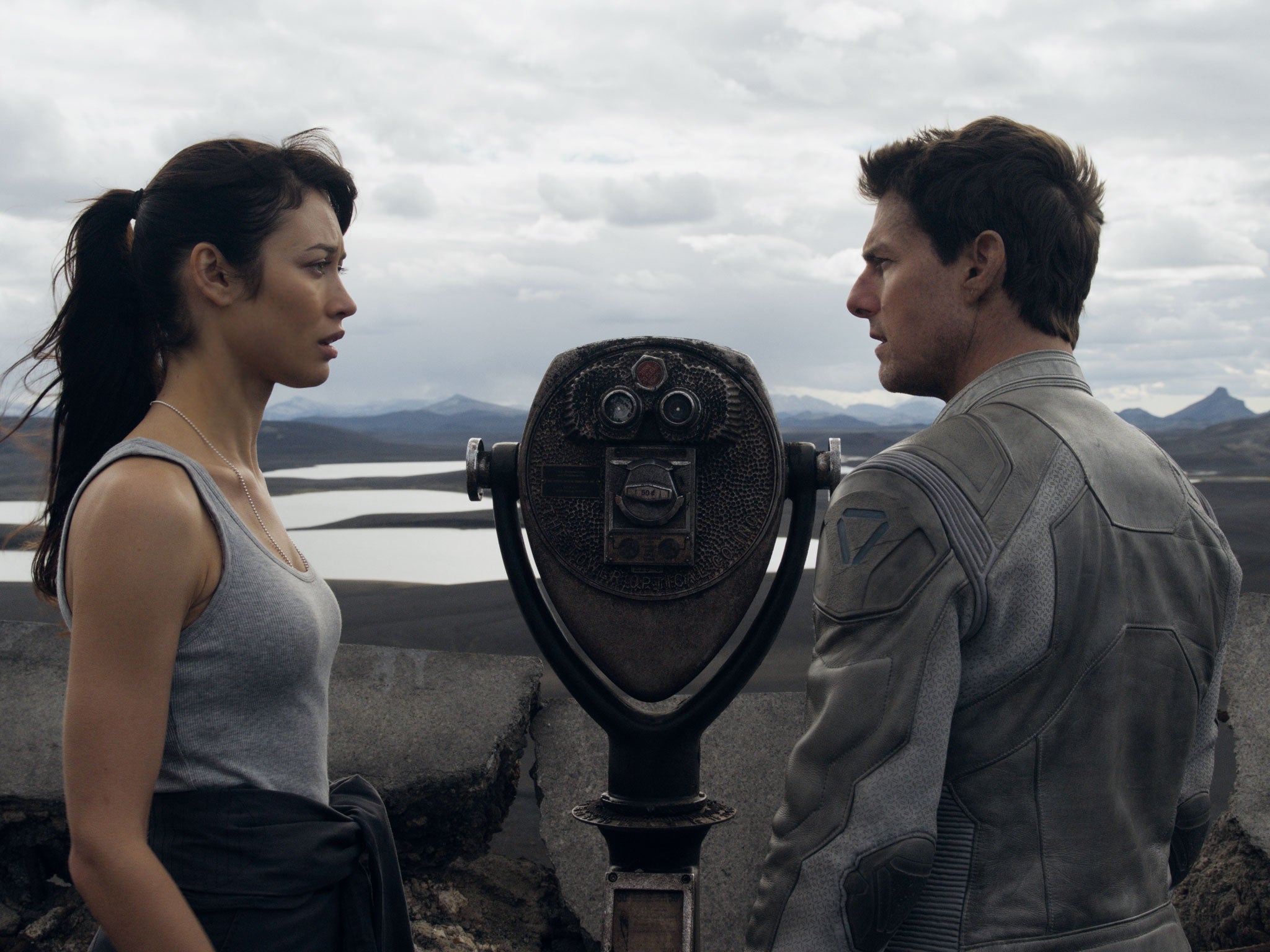Film review: Oblivion - Lovely view, but haven't you and I already met on another planet?

Twelve years ago, Cameron Crowe took an offbeat Spanish psychodrama, Open Your Eyes, and remade it as Vanilla Sky, a big and glossy Tom Cruise vehicle. Oblivion has a similar feel. It's not a remake of a specific film (although some might disagree – more on that later), but it does come across as a brain-teasing indie oddity that's been super-sized by Cruise's involvement.
It's set on a devastated future Earth. The aliens who did the devastating, the Scavengers, were routed, but they left the planet in such a post-apocalyptic mess that the human race cut its losses and moved to a colony on one of Saturn's moons. Cruise plays Jack Harper (just three months after he played Jack Reacher), one of the few people remaining on Earth. His job is to repair the heavily armed metal spheres (anyone else remember Gerry Anderson's Terrahawks?) which zoom around our poor irradiated world, picking off any lurking Scavengers. Every evening he reports back to the chic, minimalist headquarters he shares with his girlfriend, Victoria (Andrea Riseborough). And she in turn gets her orders from the icily genial Sally (Melissa Leo), who oversees their operation from an orbiting pyramidal mothership. But then another spacecraft crash lands nearby. One of its surviving passengers is a woman (Olga Kurylenko) Jack recognises from his dreams. Could there be something about his past – and the past of the whole planet – that Sally hasn't told him?
This, you might think, is pretty epic stuff, what with its aliens and spaceships and its fate-of-humanity story. And in a way it is. I saw Oblivion on an Imax screen and it looked phenomenal, from the peerless CGI, to the black-sanded canyons of Iceland, where it was filmed, to the pristine technology that might have been styled by Apple. It's directed by Joseph Kosinski, who made TRON: Legacy, and no one fashions sci-fi films that are more lustrously beautiful.
But in other ways, Oblivion is a small-scale drama. There are just six speaking parts in total, and the first hour consists of Cruise and Riseborough getting on with their maintenance job, with nary a suspicion that things aren't what they seem. Oblivion has less in common with Star Wars, then, than with the thoughtful pre-Star Wars science fiction of Silent Running and Solaris. But it has even more in common with a recent cult favourite which those films inspired, Duncan Jones's Moon. I'm not saying that Oblivion is a refashioning of Moon, of course ... but some people might.
It's to Kosinski's credit that he's made a slow-burning puzzler rather than a gung-ho action movie, but it's problematic, too. The dizzying visuals promise a sweeping adventure, so it's deflating to realise that you're actually watching a long episode of The Twilight Zone with some whizzy video-game sequences shoehorned in.
Besides, the colossal budget makes it harder to forgive a screenplay that isn't quite as deep or original as it thinks. I could list a dozen sci-films from which Oblivion has borrowed – or indeed scavenged. But I last saw some of its twists in Trance, another tricky thriller with a tiny cast. In Oblivion, Jack has had his memory wiped, and so, like James McAvoy's auctioneer in Trance, he doesn't know who he is or whose side he's on. What that means is that we can't be on his side ourselves. We keep our distance from him. That's fine for an indie drama, but when a film has a budget and a star as humungous as Oblivion has, it doesn't add up.
Critic's Choice
Christopher Walken, Philip Seymour Hoffman and Catherine Keener ponder Beethoven and mortality in the mature, contemplative study A Late Quartet … while Harmony Korine studies a less mature, decidedly uncontemplative quartet in sex-guns-and-Skrillex meta-exploiter Spring Breakers.
Subscribe to Independent Premium to bookmark this article
Want to bookmark your favourite articles and stories to read or reference later? Start your Independent Premium subscription today.

Join our commenting forum
Join thought-provoking conversations, follow other Independent readers and see their replies